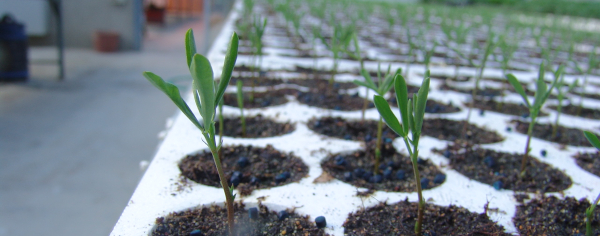University of Kassel
FB 11 Organic Agricultural Sciences
Stainstr. 19 - D-37213 - Witzenhausen
The history of agricultural education in Witzenhausen
Agricultural education has a long tradition in Witzenhausen. In 1898 a School for Tropical and Subtropical Agriculture was founded to train agricultural experts in German colonies before World War I. Since 1971 Witzenhausen has hosted the Faculty of Agronomy, International Rural Development and Environmental Protection, which is part of the University of Kassel. For 20 years Organic Agriculture has been part of the curriculum. Since 1995 the faculty focusses on organic agricultural sciences and has changed its name to the "Faculty of Organic Agricultural Sciences"; a unique situation worldwide.
Interdisciplinary and open-minded education
The faculty is known for its applied, interdisciplinary and open-minded education of students from different countries and cultures. The relatively small number of 600 students, the close proximity of all buildings, the individual contact to the staff and lecturers and the intimate atmosphere of a small town are advantageous factors.
Objectives of teaching
The main focus of the study is to impart extensive expert knowledge, which is an essential pre-requisite of sustainable agriculture with regard to different agro-ecological and economical conditions. The general objective is the development of site-specific solutions with minimal use of non-renewable resources for the sustainable protection of the food basis of a rapidly expanding world population. These are the main topics we focus on:
* maintenance of nutrient cycles,
* the reflected use of means in organic agriculture and food production,
* balanced relation between productive and ‘non-productive’ areas such as landscape protection
* and the link between agricultural practice, regional market and rural development.
Teaching and research are directed towards these topics through elaboration of cause-effect-relationships in system approaches.
Social responsibility
The Faculty of Organic Agricultural Sciences realises that important aspects of social justice need to be considered and protected to ensure the sustainable safeguarding of food. This has been the basis of our long-lasting international commitment. Therefore, all graduates will, through their course of study, be able to make socially responsible contributions with regard to sustainable agriculture, land use, food production and trade.
Teaching methods - teaching and didactic approach
In order to gain a broad understanding of the field of organic agriculture, an interdiciplinary approach in teaching is very important. Students learn to work in a case-specific and methodical manner. In addition, they acquire key qualifications, such as team work ability, interdiciplinary thinking, and responsibility, enabling them to develop modern and practical solutions to problems. For a good example of our teaching methods, refer to "Project Ecology", which takes place at the beginning of our bachelor programme.



